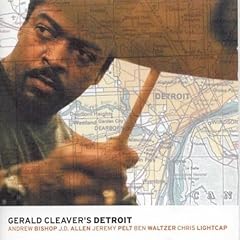 David, I want to chat with you about your new blues album Here & Gone, but first I need to vent. It upsets me when armchair jazz experts accuse you of ripping off alto saxophonist Hank Crawford. Its obvious Crawford influenced you. You always acknowledged that. Years ago, for instance, when Crawford appeared on your weekly television show Night Music you said the alto saxophonist helped shape the way you play, and you’re forever indebted to him.
David, I want to chat with you about your new blues album Here & Gone, but first I need to vent. It upsets me when armchair jazz experts accuse you of ripping off alto saxophonist Hank Crawford. Its obvious Crawford influenced you. You always acknowledged that. Years ago, for instance, when Crawford appeared on your weekly television show Night Music you said the alto saxophonist helped shape the way you play, and you’re forever indebted to him.David, I hate to play the race card. I wondered if those armchair experts singled you out because you’re Caucasian. Have you ever felt that way? I suspect you hate that like you loath being labeled a smooth jazz musician. I wonder if those armchair pundits are familiar with your background. Also if the people quick to criticize you know how many African-American musicians you helped get national exposure via your weekly television program Night Music. They probably wouldn’t be so judgmental if they knew how much time you dedicated to helping other musician.
As a lad, you had Polio. To speed up your recovery, your doctor suggested you learn the saxophone. Doing so would help the muscles damaged by the disease redevelop. You followed the doctor’s recommendation, and you got hooked. At 14, you worked with blues legends Albert King and Little Milton. That impressed me. I doubt King and Milton would’ve hired you if they weren’t confident you had talent.
I've heard African-American accuse Caucasian musicians of stealing their style. That’s bull. You guys, I believe, appreciate the music created by African-American, and have helped keep it alive. I wonder if African-American saxophonists who sound like Charlie Parker are subjected to the same scrutiny. They get thanked for carrying on Parker’s legacy while you guys get branded rip off artists.
David, now that I’ve vented, I want to talk about your new album Here & Gone. It’s a grand gesture of appreciation to every blues musicians who influenced you such as former employers Albert King and Little Minton. Both men would dig this album, and Hank Crawford would too.
David the collaborations on this session worked. Sometimes albums filled with collaborations are overwrought. The stars you selected, however, are versatile, and they complement you. On I’m Going to Move to the Outskirts of Town, Eric Clapton wailed and begged better than a seasoned panhandler.
Pop siren Joss Stone, On I Believe to My Soul voice aches with cries out like her sorority sister shipped town with her fiancée. You support and comfort her. David, you’re not a rip off artist. You’re a serious musician, and you keep making wonderful music.


